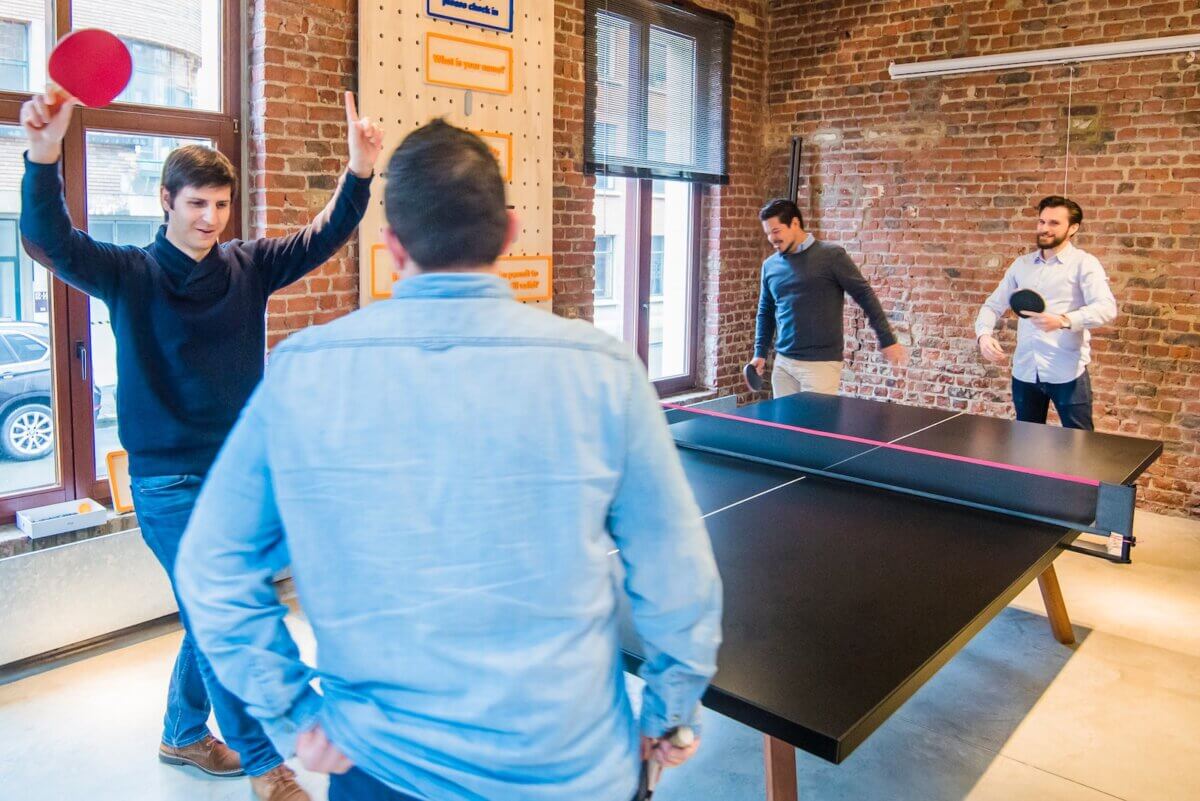LONDON — Dr. Zoe Williams, a British television presenter and medical expert, has an intriguing strategy for improving mental health: play ping-pong. In addition to mainstream sports, she’s highlighting the benefits of unique activities such as axe throwing, darts, and shuffleboard — all in the pursuit of boosting the well-being of the players.
“Life’s daily stresses – be it news, relationships, employment, or significant life changes – can heavily impact our mental well-being,” Dr. Williams says in a statement per South West News Service. “Hence, it’s crucial to incorporate activities that uplift our mood into our daily routines.”
Dr. Williams emphasizes the value of social interaction and friendly competition in sports and games, like ping-pong, citing their positive influence on mental health.
“Such activities enhance mental clarity and strengthen bonds with our fellow players. Winning or losing, the fun is always guaranteed,” she adds.
This insight follows a survey, commissioned by Bounce, a popular ping-pong organization, involving 2,000 adults. The poll found that 56 percent of respondents consider sports a stress reliever, with 62 percent asserting that friendly competition helps them relax. Despite the reported benefits of social interaction, the survey also reveals that 53 percent of participants don’t spend as much time in social groups as they would prefer, even though 72 percent experience increased happiness from such engagements.
The research reveals that four in 10 of those who use sports or games to de-stress believe that focusing on a single task helps them tune out other concerns. Interestingly, for 34 percent of participants, the real joy lies in the friendly rivalry and the satisfaction of winning, while 40 percent appreciate the increased focus that games require.

Playing games leads to more socialization
The study, conducted by OnePoll, also discovered that activities like ping-pong, axe throwing, or mini golf make social outings more enjoyable and engaging for 62 percent of participants, as compared to typical dining or drinking events. Some reasons preventing adults from socializing as much as they’d like include being too busy (40%), geographical distance from friends (36%), and conflicting schedules (33%).
Feelings of loneliness (32%), disappointment (29%), and sadness (27%) were also reported by respondents who weren’t able to spend as much time with friends as they would like. However, more than half feel good (56%) and a sense of belonging (43%) when they do manage to meet up.
The study reveals a significant shift in mental health dialogue among younger adults, with two in three people between the ages of 18 and 34 stating they talk more about their mental health now compared to five years ago.
“Our research has gratifyingly shown that hitting a ball with friends is an excellent stress-reliever. Ping-pong, unlike solo sports, brings unique joy through the connection between players. The game’s enjoyment is physically linked to your opponent’s game. It’s amazing how players surprise themselves with their skills. Ping-pong is simple, fun, and makes you feel great – we all need to play more,” says Toby Harris, CEO of State of Play Hospitality, operator of Bounce.
“Connecting with friends and family over an active, fun game can be beneficial for both your physical and mental health. Learning the skills to play a new game can boost self-confidence and self-esteem. Being active, learning, and connecting with others are three of the ‘Five Steps to Mental Wellbeing,'” adds Helen Franks, corporate partnership manager from the Charlie Waller Trust.
Dr. Williams’ tips for well-being include:
- Getting active
- Taking breaks from technology
- Creating meaningful connections
- Getting into the competitive spirit
- Being kind to oneself
Whether it’s a brisk walk in the park or a quick ping-pong game, the doctor says these activities can help reduce stress and anxiety, boost self-esteem, and improve mental health overall.
You might also be interested in:
- Best Ways To Alleviate Stress
- Most Stressful Careers In 2023
- Best Of The Best Pickleball Paddles For 2023

